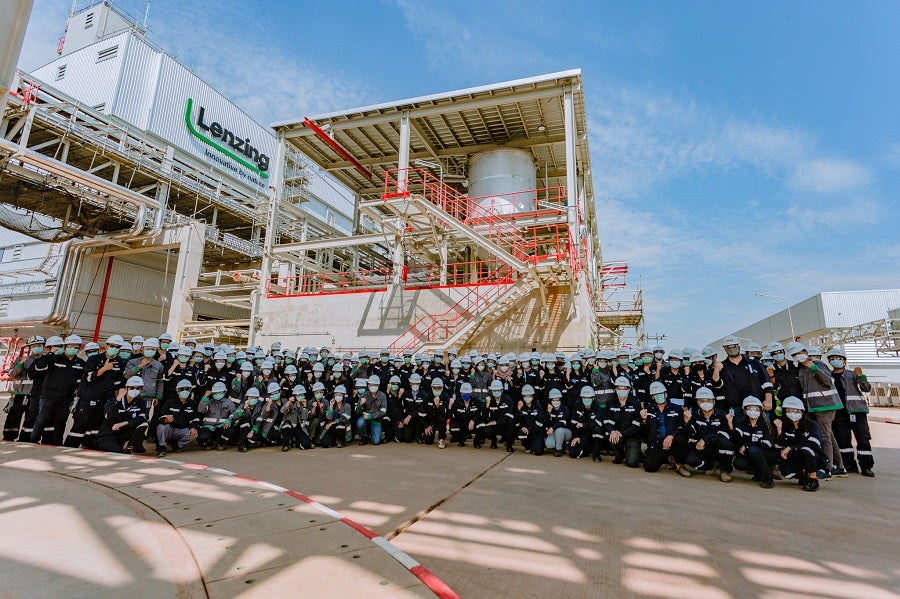
Austrian cellulosic fibre producer Lenzing has completed its lyocell expansion project in Thailand, noting that the plant – which it claims is the largest of its kind in the world – started production on schedule.
The firm adds the facility will help it to better meet the increasing customer demand for Tencel branded lyocell fibres and also represents an important step towards strengthening its leadership position in the specialty fibre market and into a carbon-free future.
The construction of the plant in Prachinburi, around 150km northeast of Bangkok, started in the second half of 2019 and proceeded largely according to plan, despite the challenges arising from the Covid-19 pandemic, the group says.
“We are very proud of this achievement. Our sincere thanks go to the entire Lenzing team and especially to our staff in Thailand but also to many external stakeholders, who joined forces in times of a global pandemic to make this key project reality. To deliver such a huge project in time and at budget is an outstanding achievement given the challenges of the global pandemic,” says Cord Prinzhorn, CEO of Lenzing Group.
Robert van de Kerkhof, member of the managing board, adds: “The demand for our wood-based, biodegradable specialty fibres under the Tencel, Lenzing Ecovero, and Veocel brands is growing very well. In Asia in particular, we see huge growth potential for our brands based on sustainable innovation. With the production start of the lyocell plant in Thailand, Lenzing reached an important milestone in its growth journey, supporting our ambitious goal to make the textile and nonwoven industries more sustainable.”
Lenzing adds it will continue to expand its production capacity for lyocell fibres in line with its sCore Ten strategy, which aims to generate 75% of its fibre revenue from eco-responsible specialty fibres by 2024. It notes the Thailand site offers space for several production lines, with the investment in the first phase already including general infrastructure that would benefit future expansion.
The company says, however, it will continue to look for opportunities to expand lyocell production in other parts of the world too.
“Investments in Thailand and other Lenzing sites around the world support us not only along our transformation towards becoming a supplier of eco-friendly specialty fibers but also in implementing our ambitious climate targets, thus further increasing our company value,” Prinzhorn adds.
In 2019, Lenzing made a strategic commitment to reducing its greenhouse gas emissions per tonne of product by 50% by 2030. The vision is to be climate-neutral by 2050. Due to the established infrastructure, the site in Thailand can be supplied with sustainable biogenic energy and contribute significantly to climate protection, it says.
Together with its project in Brazil and investments at its existing sites in Asia, Lenzing says it is currently implementing the largest investment programme in its corporate history at more than EUR1.5bn (US$1.13bn).
“Lenzing will continue to drive the execution of its strategic projects, which are to make a significant contribution to earnings from 2022,” the company says.



